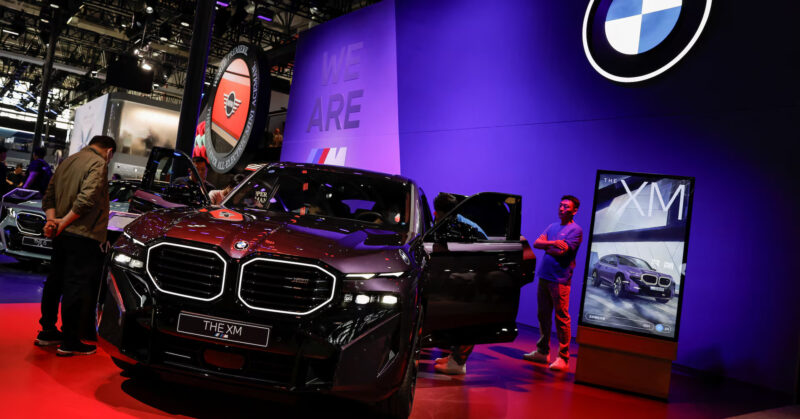BMW reported a 1.4% global sales decline in the first quarter of 2025, with weak demand in China contributing significantly to the downturn.
The German automaker delivered 586,149 vehicles globally, marking the worst first-quarter sales figure in China since 2020, which saw a sharp 17.2% drop.
While BMW performed better in Europe, with a 6.2% year-on-year increase in sales, its performance in China was a major drag on overall figures. This decline in the Chinese market reflects ongoing economic challenges, including the country’s property crisis and competition from local automaker BYD. BMW’s sales in Germany also dipped slightly by 1.3%, while regions like the Americas and the US saw growth, with sales rising by 5.4% and 4.1%, respectively.
The situation is not unique to BMW, as other European carmakers such as Porsche, Mercedes-Benz, and Volkswagen have also experienced similar declines in China. However, BMW found a silver lining in its electric vehicle (EV) sales, which surged by 64.2% in Europe. The company delivered a total of 109,516 fully-electric BMW, MINI, and Rolls-Royce vehicles globally, marking a 32.4% increase compared to last year.
Jochen Goller, a member of BMW’s Board of Management, expressed optimism, stating, “One in three MINIs sold in Europe and more than one out of every two sold in China were fully-electric.” He also highlighted strong growth in new orders across all drive technologies, particularly in Germany.
Despite this success in EV sales, BMW continues to face challenges related to the global transition away from petrol and diesel vehicles. European manufacturers are grappling with shifting emissions targets, competition from cheaper Chinese rivals, and slow infrastructure development for EV charging. Companies like Volvo and Porsche have already scaled back their EV targets.
The automaker’s announcement comes as the US ramps up trade tensions, with President Trump’s 25% tariff on imported cars set to impact BMW’s US operations. Additionally, tariffs on auto parts will begin on May 3. BMW has already warned that these trade policies could reduce its earnings by $1.1 billion (€987m) this year, forcing carmakers to decide between absorbing the costs, pausing shipments to the US, or shifting production there.
While moving production to the US might align with Trump’s trade policies, experts question whether it is feasible given the volatile nature of current trade relations and the possibility of an economic downturn that could further impact consumer spending and business profits.




